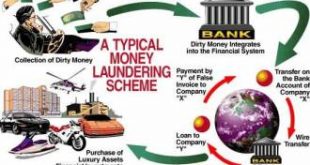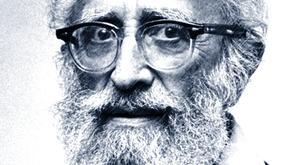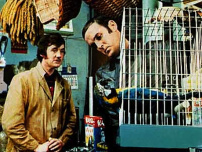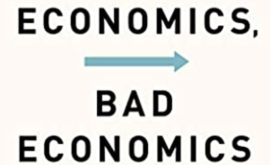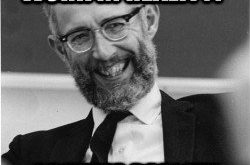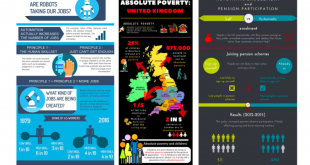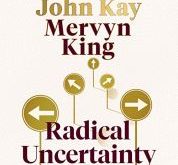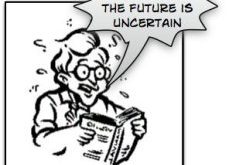Stratégiques et vitales pour l’économie, les banques sont devenues, au fil des crises financières, l’un des secteurs les plus régulés au monde. Pourtant, malgré les règles et les contrôles, le secteur bancaire mondial reste poreux au blanchiment d’argent et peine à lutter contre la circulation de l’argent sale, selon les « FinCEN Files », la nouvelle enquête conduite par le Consortium international des journalistes d’investigation (ICIJ) avec le site d’information américain...
Read More »How to cope with inflation
How to cope with inflation Less well worked out is a technique of dealing with the other responsibility of the creator of money – the responsibility for maintaining its value. The key points here are not in the direct supply of money, or even in the regulation of the level of spending. The key points are in the determination of wage rates and in the determination of rates of markup of selling prices over costs … Higher wages relatively to prices...
Read More »Expected utility theory — an ex-parrot
Expected utility theory — an ex-parrot If a friend of yours offered you a gamble on the toss of a coin where you could lose €100 or win €200, would you accept it? Many of us probably wouldn’t. But if you were offered to make one hundred such bets, you would probably be willing to accept it, since most of us see that the aggregated gamble of one hundred 50–50 lose €100/gain €200 bets has an expected return of €5000 (and making our probabilistic calculations...
Read More »The value of economics — a cost-benefit analysis
The value of economics — a cost-benefit analysis Economists cannot simply dismiss as “absurd” or “impossible” the possibility that our profession has imposed total costs that exceed total benefits. And no, building a model which shows that it is logically possible for economists to make a positive net contribution is not going to make questions about our actual effect go away. Why don’t we just stipulate that economists are now so clever at building models...
Read More »Friedman-Savage and Keynesian uncertainty
Friedman-Savage and Keynesian uncertainty An objection to the hypothesis just presented that is likely to be raised by many … is that it conflicts with the way human beings actually behave and choose. … Is it not patently unrealistic to suppose that individuals … base their decision on the size of the expected utility? While entirely natural and under- standable, this objection is not strictly relevant … The hypothesis asserts rather that, in making a...
Read More »IPA’s weekly links
Guest post by Jeff Mosenkis of Innovations for Poverty Action. Some student-created infographic examples from the Communicating Economics website. Communicating Economics is a site with tools, tips, and videos of in-person college level lectures on, well, pretty much what the title says. It comes from the person behind Econ Films, whom I’ve worked with before and are very good at at what they do. A Belgian court has cleared the way for the remains of the first Prime Minister of an...
Read More »Michael Woodford on models
Michael Woodford on models But I do not believe that the route to sounder economic reasoning will involve an abandonment of economists’ penchant for reasoning with the use of models. Models allow the internal consistency of a proposed argument to be checked with greater precision; they allow more finely-grained differentiation among alternative hypotheses, and they allow longer and more subtle chains of reasoning to be deployed without both author and...
Read More »On war and economics
On war and economics They soon found out how difficult the subject was, and felt justified in evading the problem by again directing their principles and systems only to physical matters and unilateral activity. As in the science concerning the preparations for war, they wanted to reach a set of sure and positive conclusions and for that reason considered only factors that could be mathematically calculated … It is only analytically that these attempts at...
Read More »Does it — really — take a model to beat a model? No!
Does it — really — take a model to beat a model? No! Many economists respond to criticism by saying that ‘all models are wrong’ … But the observation that ‘all models are wrong’ requires qualification by the second part of George Box’s famous aphorism — ‘but some are useful’ … The relevant criticism of models in macroeconomics and finance is not that they are ‘wrong’ but that they have not proved useful in macroeconomics and have proved misleading in...
Read More »On ergodicity and epistemological vs. ontological uncertainty
On ergodicity and epistemological vs. ontological uncertainty A couple of years ago yours truly had a discussion on the real-world economics review blog with Paul Davidson on ergodicity and the differences between Knight and Keynes re uncertainty. It all started with me commenting on Davidson’s article Is economics a science? Should economics be rigorous? : LPS: Davidson’s article is a nice piece – but ergodicity is a difficult concept that many students of...
Read More » Heterodox
Heterodox

